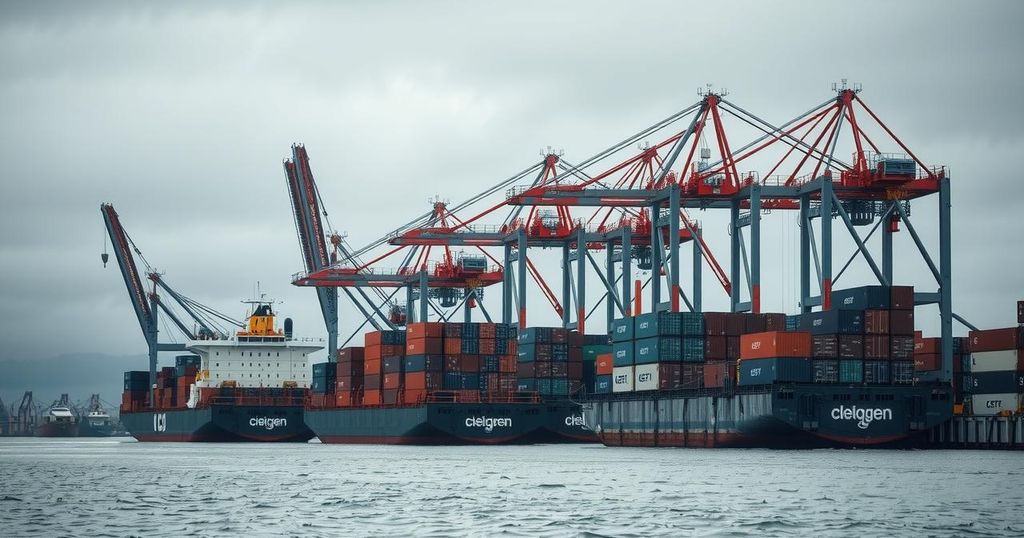Iran’s Missile Program Receives Boost as Ship from China Delivers Key Component

Iran has resumed missile production with the arrival of sodium perchlorate from China for military use. The Golbon ship delivered this critical component, enabling production for multiple missile types. This development follows a series of Israeli airstrikes on Iranian missile facilities, challenging previous assessments of a protracted halt in production. The current geopolitical dynamics in the region are volatile, especially following Iran’s recent setbacks with its allies.
According to reports from CNN, Iran is reviving its missile production capabilities following Israeli airstrikes on significant military facilities last year. This revival is marked by the arrival of a ship from China carrying a critical component for the military missile program. European intelligence indicates that the Golbon vessel recently delivered a substantial shipment of sodium perchlorate, which is essential for producing solid fuel used in Iran’s medium-range missiles.
The vessel departed from Taikang, China, three weeks ago, carrying nearly a thousand tons of sodium perchlorate. This chemical is capable of supplying fuel for approximately 260 solid-fuel rocket motors used in Kheibar Shekan missiles, as well as 200 Haj Qasem ballistic missiles. This arrival is particularly significant given Iran’s recent setbacks in regional conflicts, including losses suffered by its allies in Syria and Lebanon after Israeli military operations.
Despite previous assessments suggesting that a year-long delay in fuel production could be expected due to Israeli strikes, this delivery indicates that Iran might be close to resuming or may already have restarted missile production. The purchase of this chemical was reportedly made for the Self-Sufficient Jihad Organization (SSJO), which oversees the development of Iranian ballistic missiles. A second vessel, Jairan, is yet to load its shipment and depart from China.
Both ships are managed by the Islamic Republic of Iran Shipping Lines (IRISL). The Golbon ship left Taikang on January 21 while the Jairan’s schedule for transporting the remaining shipment to Iran remains undetermined. In response to inquiries regarding the shipment, a representative from China’s Foreign Ministry stated they were unaware of specific details and opposed “illegal unilateral sanctions.”
Israeli forces have targeted Iranian military interests multiple times in the past year, including significant operations in October and November that reportedly aimed at military bases and nuclear research facilities in Iran. These developments may further complicate the geopolitical landscape in the region as tensions continue to rise.
In conclusion, the resumption of Iran’s missile program, facilitated by the recent arrival of sodium perchlorate from China, underscores the ongoing complexities of regional security. This development follows significant Israeli military actions against Iranian facilities, suggesting a potential escalation in the arms race. As Iran seeks to bolster its military capabilities, the international community remains vigilant amidst growing tensions.
Original Source: babel.ua








